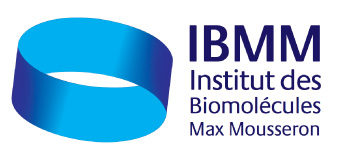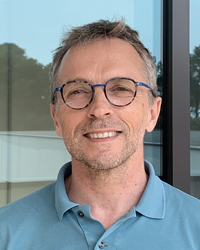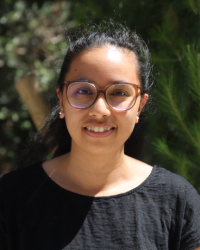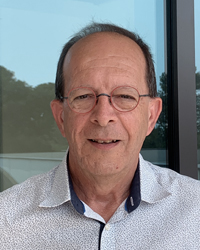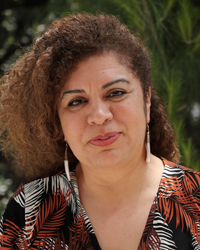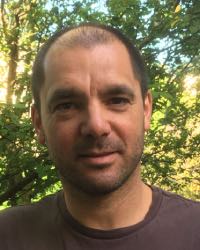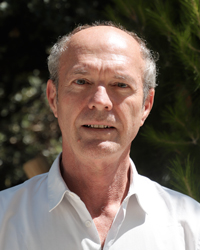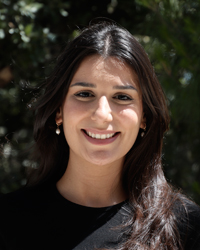The F16 team, rich in multiple cross-disciplinary and complementary skills in chemistry, physicochemistry and biology has 3 main objectives, with a very strong positioning in oncology:
- Objective 1: to synthesize new molecules with therapeutic interest in oncology and infectiology, and to understand their mechanism of action,
- Objective 2: to identify new therapeutic targets in oncology, by studying mechanisms of tumoral chemoresistance,
- Objective 3: to develop new alternative models (in vitro, vivo and ex-ovo) which can be used in oncopharmacology, senescence (Nematode, Tardigrade, CAM), and cutaneous pharmacotoxicology on the absorption of xenobiotics with impact of drug formulations.
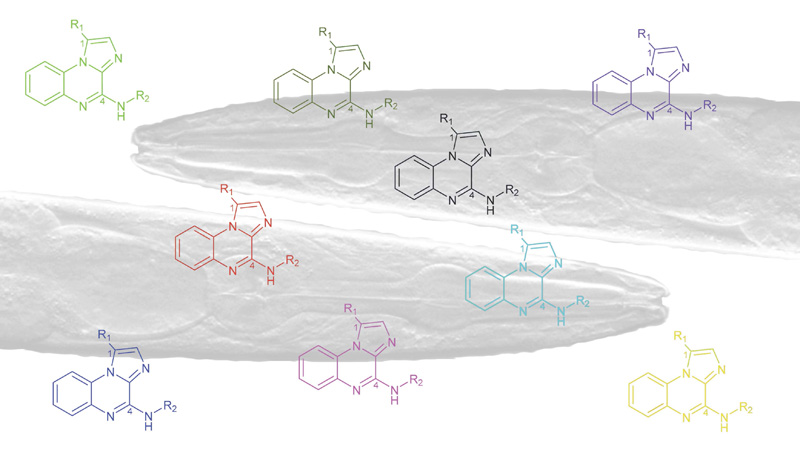
Our Themes
Medicinal Chemistry / Oncopharmacochemistry
Medicinal Chemistry / Oncopharmacochemistry (Pierre-Antoine BONNET, Carine MASQUEFA, supervisors)
The team focuses on the development of novel heterocycles with anti-cancer and immunomodulatory activities. The Medicinal Chemistry approaches used for the Imiqualines series, its 3 generations of products and the 3 logs improvement of cytotoxic activity on diverse human cancer cell lines constitute the main part of the scientific orientation of the Group. This orientation benefits from a strong and ongoing support from the SaTT AxLR in the context of the MUSE project, the IRCM via the MPCC platform supported by the SIRIC and several highly productive international partnerships. In a chemical point of view, diversity for the next generations of Imiqualines will be obtained by further modifications and substitutions of the main imidazo[1,2-a]quinoxaline heterocycle using cross-couplings such as Sonogashira, Suzuki-Miyaura or Buchwald-Hartwig reactions or other classical nucleophilic substitutions are well-known within the team: imidazo[1,5-a]quinoxaline and pyrazolo[1,5-a]quinoxaline.
Mechanism of action of new active molecules
Mechanism of action of new active molecules (Pierre CUQ, Laure-Anaïs VINCENT, supervisors)
Two main projects are developped: i) the project “imiqualines”, at the origin of the formation of the Team F16 with Pr. PA BONNET and Pr. C MASQUÉFA, ii) the project “diazepinones” in collaboration with Pr. N MASURIER (F9-IBMM), with the support of the MUSE consortium. Group 2 supervises the biological part of the determination of the mechanism of action (MOA) and of the identification of the pharmacological targets of the new active molecules. This step, critical in the development of drug candidates, is achieved in close collaboration with Groups 1 and 3. Thus, each task is thought of in a transversal and synergistic way with the aim of valorization. The new families of active compounds are initially patented to consider the development of the best compounds through maturation programs. Nevertheless, our major goal remains to publish in high-impact international papers in the medium term.
Alternative models for pharmacotoxicology applied on xenobiotics product and aging
Alternative models for pharmacotoxicology applied on xenobiotics product and aging (Simon GALAS supervisor)
This team gathers alternative models dedicated for new experimental designs in order to assess for active molecules properties such as transdermal permeant molecules, cytotoxic molecules on human biopsies as well as acute and chronic multigenerational effect of molecules acting on cell stress and proliferative capacity including acquired chemoresistances.
We develop further the Caenorhabditis model and its accompanying molecular genetics tool-box in order to asses for the in vivo effect of new molecules directed against acquired chemoresistence as well as their impact on a multigenerational scale and on the stress resistance and the aging process. We also assess for possible hormetic and epigenetic effects of molecules. Our expertise also permits for new gaz toxicity assessments towards industrial collaborations. We also develop a new in vivo model: the tardigrade, which is believed as one of the most resistant organisms on earth. We intend to develop a molecular genetic tool-box for this emerging model in order to assess for molecules activity and biological targets.
